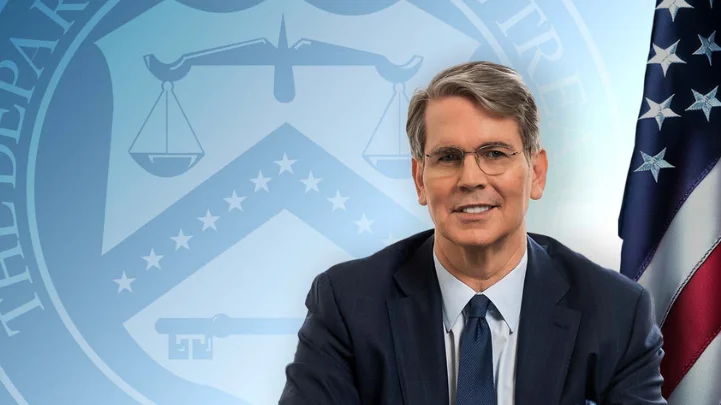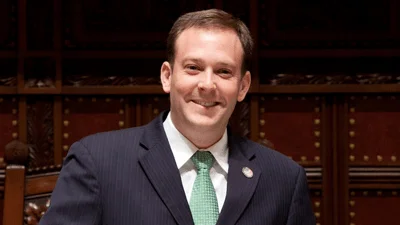As the Annual Meetings of the World Bank and International Monetary Fund (IMF) take place, U.S. Secretary of the Treasury Scott Bessent outlined the United States’ position on global economic challenges and the roles of international financial institutions.
Bessent emphasized the need for collaboration with effective, efficient, and accountable international financial institutions to achieve growth and stability. He stated, “The International Monetary Fund (IMF) and the World Bank can support America’s efforts to secure a more balanced, prosperous, and stable global economy through a return to their core missions and disciplined deployment of their resources.”
He noted recent changes at both organizations since the Spring Meetings. The IMF has consolidated its climate and gender units into one focused on macro-financial and structural policies, while eliminating non-core issues from its Board Work Program. The World Bank has lifted its prohibition on financing nuclear power generation and increased focus on procurement quality.
Despite these developments, Bessent called for more targeted action: “Nonetheless, the IMF and World Bank must take more concerted steps to focus on their respective core missions and deliver greater impact to the countries they support and greater value to taxpayers from the United States and other shareholders.”
On domestic policy, Bessent highlighted President Trump’s economic agenda involving tax cuts, energy policy reforms, and regulatory modernization. He credited these measures with boosting investment in the U.S.: “Thanks to actions taken by the Trump Administration, businesses are investing in America again. A revitalized private sector will propel economic growth and maintain America’s position as the most dynamic economy in world.”
Bessent also addressed global economic conditions. He observed that many countries face slow growth due to regional conflicts, governance issues, or overregulation. He argued that strengthening resilience through productivity-enhancing policies is essential for withstanding shocks.
Discussing IMF operations, Bessent stressed that surveillance should be central: “We expect the IMF to strengthen its surveillance activities and to do so with objectivity and evenhandedness.” He added that this work should remain focused on macroeconomic stability rather than broader topics such as climate or gender.
He expressed concern about repeat borrowing from the IMF: “The number of repeat borrowers suggests that programs often fail to work as intended and that stronger adjustments are necessary to strengthen program effectiveness.” He called for stricter program conditionality centered on macroeconomic reforms.
On debt distress situations, Bessent said burden sharing among creditors is vital: “While the IMF has increasingly assumed responsibility for facilitating bilateral debt negotiations... it continues to let recalcitrant creditors off the hook too easily...” He cautioned against using IMF resources as a means for creditor countries to recover losses without sharing responsibility.
Addressing corruption concerns in lending programs, he said: “Strong commitments to governance, anti-corruption, and effective safeguards must underpin lending programs...”
Turning to World Bank priorities, Bessent advocated investments in affordable energy access as well as poverty reduction strategies. He called for renewed focus on helping countries achieve self-reliance rather than continued dependence on multilateral assistance. This includes ending support for China while redirecting resources toward poorer nations where needs are greatest.
Bessent urged more attention during IDA-21—the 21st replenishment cycle of the International Development Association—to macroeconomic stability fundamentals supporting growth in vulnerable countries.
He encouraged an inclusive approach toward energy financing at the World Bank: “We urge the World Bank to finance all affordable and reliable sources of energy... Energy abundance sparks economic abundance...” Bessent welcomed removal of restrictions on nuclear financing but called for further expansion into other energy sources such as gas, oil, and coal.
He highlighted U.S. priorities around building resilient supply chains for critical minerals—a topic gaining importance due to concentrated supply risks—and acknowledged ongoing efforts by the World Bank in this area.
Regarding procurement reforms at the Bank, he said improvements should include extending quality-based approaches beyond international procurement while curbing anti-competitive practices by state-owned enterprises not operating commercially.
Bessent reaffirmed U.S. commitment to responsible governance at Bretton Woods institutions created 80 years ago. On quota reform at the IMF he stated: “The United States believes the IMF has the resources it needs... However, any future governance discussions must be underpinned by a new quota formula.” At the World Bank he noted lack of consensus on shareholding realignments after recent discussions.
Lastly, Bessent criticized rising administrative costs at both organizations: “Yet nearly every year we see increasing budgets and ballooning salaries...” He congratulated efforts toward budget restraint but insisted on continued discipline—expecting flat budget growth ahead along with salary freezes for senior management.
“As I said in the spring, America First does not mean America alone,” concluded Bessent. “The United States ‘is in it to win it’ at the World Bank and IMF...”





